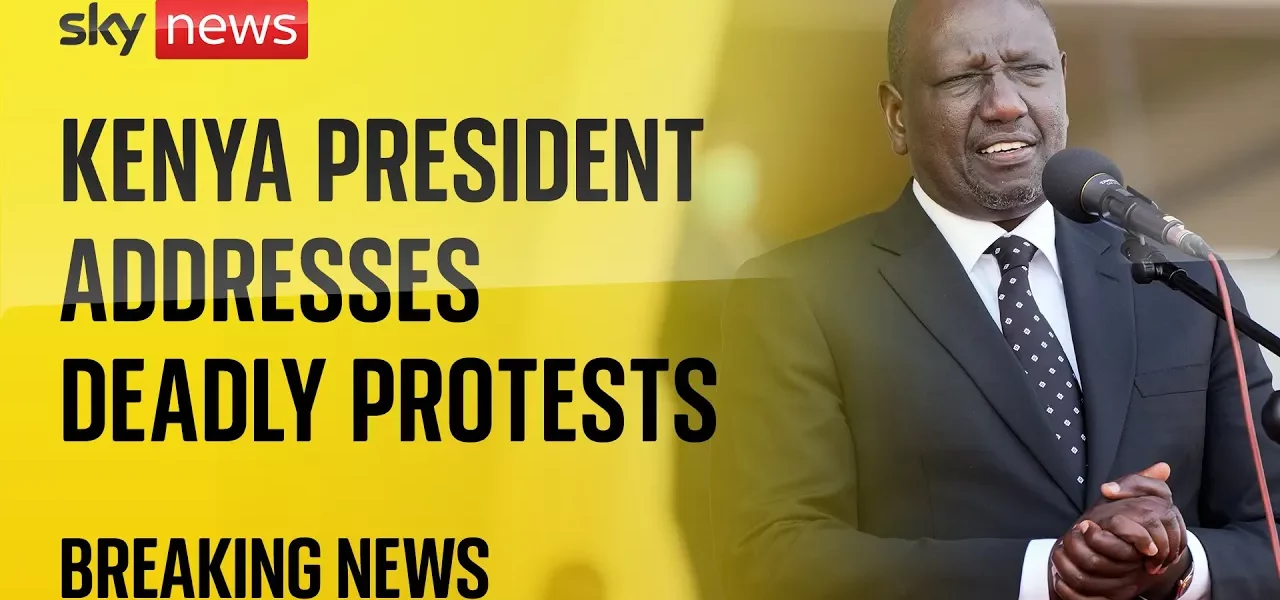Kenya’s Commitment to National Security and Democratic Discourse

This article explores the recent statements made regarding Kenya’s national security, the commitment to uphold constitutional values, and the importance of maintaining a democratic discourse in addressing national issues.
Introduction
The ongoing conversation surrounding national security and democratic discourse in Kenya has taken center stage in recent discussions. As threats from criminal elements pose challenges to the nation’s peace and stability, the government has reiterated its commitment to protecting citizens while fostering a platform for open dialogue. This article delves into the key points of the government’s stance, the importance of constitutionalism, and the separation of crime from legitimate democratic expressions.
The Government’s Stance on National Security
In addressing the threats to national security, the government has taken a firm stand against criminal activities that seek to undermine the peace and stability of the nation. The following points highlight the key aspects of this stance:
- Deployment of National Security Forces: All organs of national security have been directed to deploy resources effectively to counter any attempts by criminals to disrupt the security of the nation.
- Protection of Citizens: The government’s primary responsibility is to ensure the safety and security of its citizens, emphasizing that any threats will be treated as existential dangers to the Republic.
- Framework for Engagement: The government aims to provide a structured framework for addressing critical national issues through informed discourse.
Importance of Democratic Discourse
While the government has taken a strong stance on security, it also recognizes the value of maintaining a democratic discourse. Below are essential components of this approach:
Foundation of Constitutional Values
The government emphasizes that all national conversations must honor the foundational values of the nation, which include:
- Constitutionalism
- The Rule of Law
- Respect for Institutions
Distinction Between Protest and Crime
It is crucial to differentiate between lawful expressions of dissent and criminal activities that undermine public safety. This distinction is vital for:
- Protecting the rights of individuals to express divergent opinions.
- Ensuring that peaceful protests are not hijacked by criminal elements.
- Maintaining order and preventing violence in society.
Government Commitment and Future Actions
The government has made several commitments to address the challenges posed by criminal elements while promoting unity and peace:
Upholding Constitutional Mandates
The government is bound by a constitutional mandate to uphold the sovereignty of the people, ensuring that:
- All actions taken align with the Constitution of Kenya.
- Every threat to national security is met with an effective response.
Promotion of National Unity
The government aims to foster an environment where:
- All citizens feel secure and valued.
- A collaborative approach is taken in policymaking.
- Discussions around national issues are constructive and respectful.
Conclusion
In summary, the government’s commitment to national security and democratic discourse is paramount in safeguarding the integrity of Kenya as a Republic. By addressing criminal activities decisively, while promoting respectful and constructive dialogue, the government aims to protect its citizens and uphold the values enshrined in the Constitution. As this conversation continues, it is essential for all stakeholders to engage positively, ensuring that the democratic principles of the nation are preserved and strengthened. Join the conversation and stay informed about the developments in national security and governance.
“`




